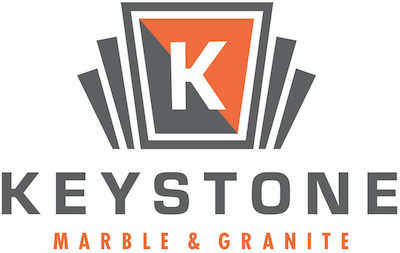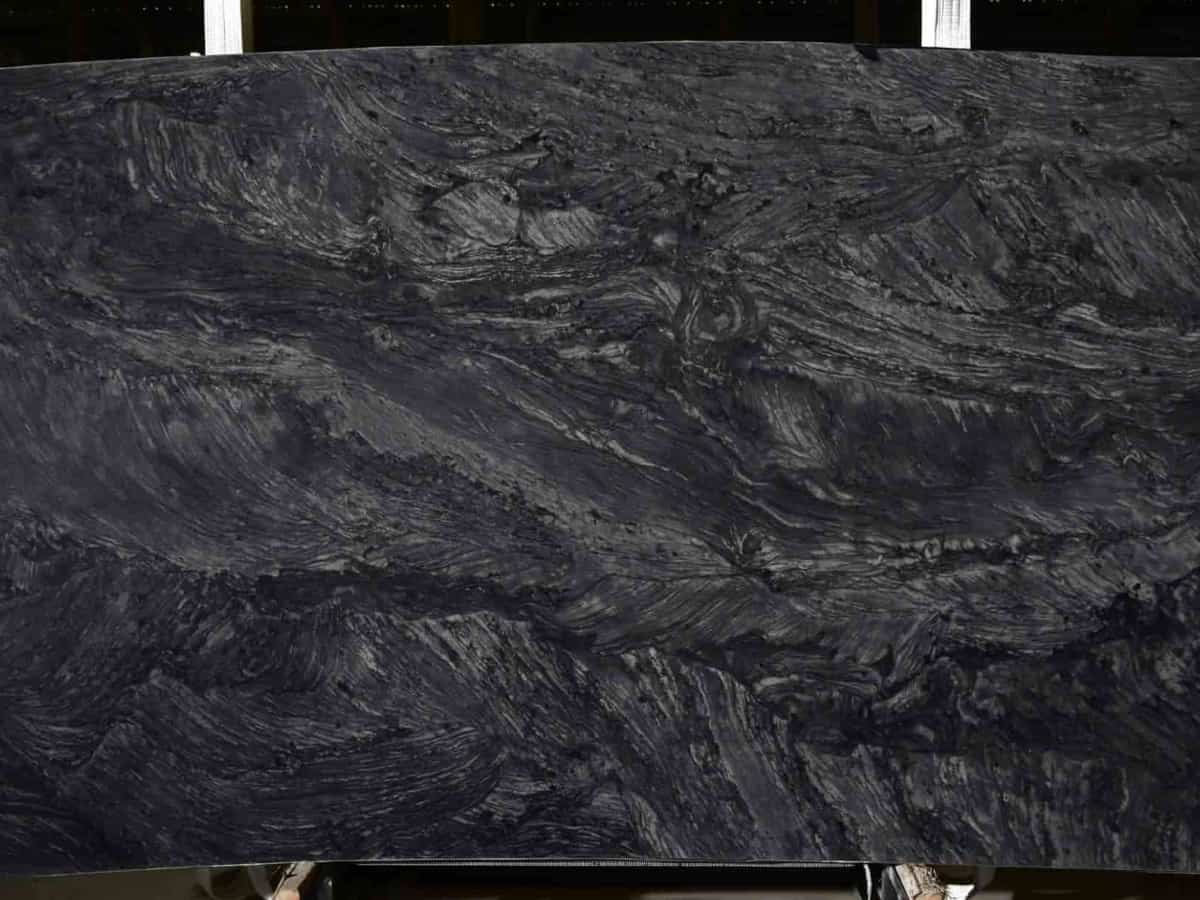Trying to decide on which material you should choose for your kitchen countertops can be very difficult. After all, they all have different qualities, weaknesses, colors, and patterns.
You are in the right place if you are trying to choose between granite and quartzite! Although these two natural stones both have generally similar qualities, they also have some key differences. In this article, we will go in-depth and discuss these differences and help you decide which is the better choice for you.
First, a quick overview of both stones might be helpful. Quartzite is a metamorphic rock that is formed from sandstone. As sandstone is subjected to extreme heat and pressure, it hardens and forms quartzite. Later it is mined and cut into slabs to become your new countertops.
Granite is also a naturally occurring material; each slab is different and unique. Granite is also known for offering more choices in terms of color. Although it is an extremely hard stone, it is porous, meaning the slab has tiny holes throughout, and liquids can seep into it. Therefore, both quartzite and granite require sealing.
Now let’s get into the differences and similarities and ultimately help you decide which is the right choice: quartzite vs. granite.
Similarities Between Quartzite and Granite
1. Both granite and quartzite are incredibly strong and hard materials that are perfect for a countertop surface. Although quartzite has a slight edge in terms of its hardness, granite is also very durable and will prove to be reliable.
2. They are both porous Therefore, they will need to be sealed before installation. Furthermore, they will need to be regularly resealed once a year for longevity and durability. However, it is essential to note that granite doesn’t need to be resealed as often as quartzite, but it is still best to reseal granite countertops once a year just to be safe.
3. Both of these natural stone countertops will be extremely easy to clean. Moreover, neither requires special cleaning products or tools. You can mix some mild dish soap with lukewarm water to prepare the best daily cleaner for your counters.
4. As they are both incredibly strong and hard materials, they will both ensure longevity if you pay attention to proper maintenance.
As long as you reseal them regularly and make sure to adhere to their specific requirements, such as using trivets, they won’t need to be replaced for a long time.

Quartzite vs. Granite: Appearance
Quartzite is a natural stone, and its patterns and colors vary infinitely. You cannot find two quartzite slabs that look the same. In other words, if you choose to go with quartzite, your quartzite countertops will be uniquely yours. This is quite a big selling point for most people as they like the idea that their kitchen will be one of a kind.
Furthermore, it has a slightly coarse texture, making it appear more natural, earthy, and organic. This texture occurs because quartzite isn’t manipulated from its original composition.
You can also find some quartzite slabs that look exactly like marble. This makes it an excellent alternative for those who love the look of marble yet don’t want to deal with its high-maintenance nature.
Quartzite is usually available in white, cream, and light gray shades. However, you can find ones that have blue, gold, brown, pink, or green hues.
Granite has a wide variety of colors, which is where it differs from quartzite. While quartzite is available in limited colors and is excellent for those looking for an organic look, granite can offer numerous colors and patterns. Similarly, as granite is a natural stone, no two granite slabs are the same.
Therefore, if you want an organic stone but aren’t satisfied with the quartzite options, granite is the one for you.
Quartzite vs. Granite: Durability
Quartzite goes through an intense process that includes immense amounts of heat and pressure. Therefore, it becomes an extremely durable and long-lasting material after forming through this process. It is highly resistant to wear and tear; it wouldn’t get damaged under extreme conditions.
Moreover, this durability makes it easy to maintain. As quartzite is less porous than granite, when any liquid or food spills onto your countertops, it is less likely to sink into the stone and create stains or permanent discoloration. Furthermore, the only downside of spills isn’t just the looks.
If food and beverage particles penetrate the stone and start spoiling, it can cause bacterial growth and mold.
This isn’t to say granite is fragile. Granite is also known for its durability; it is even used in construction as a base. However, when durability is in question, quartzite is the clear winner.
Quartzite vs. Granite: Heat Resistance
Quartzite and granite are both highly resistant to heat. As long as the quartzite or granite you are interested in is high quality and pure, it will not be harmed by heat. If they are of lower quality, they may be mixed with resin, making them less heat-resistant. Mixing the natural quartzite with resin can result in etching if hot items are placed on it.
It is best to use a hot pad or a trivet on quartzite countertops just in case, as prolonged exposure to very high heat can cause the stone to melt, or the hot pan you have placed can leave a mark.
Therefore, in the case of heat resistance, granite has a slight edge as it can withstand prolonged heat.
Quartzite vs. Granite: Cost
Usually, quartzite is more costly than granite. However, this also depends on the quality and rarity of the specific stone you are interested in. For example, a very rare and high-quality granite slab can be more expensive than low-grade quartzite slabs.
Furthermore, the price also heavily depends on your location and whether or not the stone you are interested in can be sourced locally. As you can imagine, stones that need to be imported will cost much more. The quality will alter the price as well. The harder the stone, the better quality and the more expensive it is.
When talking about the cost of a kitchen remodel, the price of the raw material isn’t the only cost you should take into consideration. Other detailing, such as the edges of the countertops, can also add up. The installation can also be costly.
However, as installation needs a lot of expertise and can heavily influence how durable and long-lasting your countertops will be, it is an aspect that you should feel comfortable splurging on.
Quartzite vs. Granite: Pros and Cons
Price
One of the biggest pros of granite is its price. As granite is one of the most abundant natural resources on earth, it is very accessible and affordable. It is cheaper than its other natural counterparts, such as marble and quartzite.
Natural Stones
One of the most desirable aspects of quartzite and granite is that they are natural stones. This lends a certain look that is almost impossible to replicate with engineered stones. Moreover, natural stones add a significant amount of value to your property.
Therefore, if you ever decide to sell your home, you will see the benefits of this investment. Furthermore, as quartzite has a particularly similar appearance to marble, it is an excellent alternative without high maintenance.
Durable
Granite and quartzite are both extremely durable materials.
However, they both have certain strong and weak points. For example, granite is much more heat resistant. On the other hand, quartzite is a harder, therefore longer-lasting stone.
Although both are heat resistant, quartzite can melt after prolonged exposure to extreme amounts of heat. For example, leaving an extremely hot pan on quartzite countertops can leave a circular mark. Granite is more durable to prolonged heat and less likely to be damaged.
Regular Maintenance
Both are very easy to clean. Neither requires special cleaning products nor do they need professional cleaning.
However, it is very important to note that both require regular resealing. Professionals usually recommend sealing your countertops once a year. However, if you notice that the shine on your countertops has faded or there is etches, you might want to reseal it even though it hasn’t been a year.
Quartzite can etch if it comes into contact with acidic liquids.
Therefore, it is essential to ensure you aren’t using any cleaners containing lemon juice or bleach. Furthermore, if you spill acidic liquids such as vinegar and lemon, you should wipe them as quickly as you can.
Related Read: Marble vs. Quartzite – The Differences
Conclusion: Which is Better for the Kitchen?
There is no answer to “Quartzite vs granite, which countertop material is the best for your kitchen?”
Both of them can provide you with durable countertops, islands, or backsplashes, depending on your preferences and needs. The question you should be asking instead is, “Which one is better for the specific needs of my kitchen?” because everybody has different preferences and needs.
You might not care about the color selection, or heat resistance might be the most necessary criterion on your checklist. As provided in this article, these fantastic stones have pros and cons. Therefore, the best way to go about choosing which one will satisfy your needs is to make a list of must-haves and must not haves.
Afterward, figure out which one matches that list the best. From then on, you can consult a professional further to customize it to your practical and aesthetic wishes.
FAQ
- Does quartzite chip easier than granite?
Quartzite is generally considered to be more prone to chipping compared to granite. The reason is quartzite can have natural weak points that may be susceptible to chipping if subjected to heavy impacts or pressure.
- Is quartzite harder than granite?
Yes, as quartzite goes through a metamorphic process, which includes extreme amounts of pressure and heat, quartzite is harder than granite. This isn’t to say granite is a soft material. Compared to natural stones such as marble, granite is considered hard. However, in comparison, it is not as hard as quartzite.


